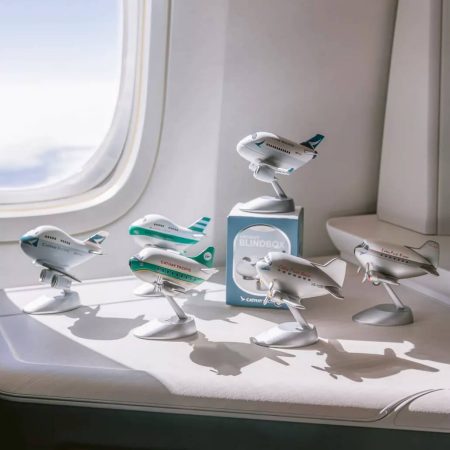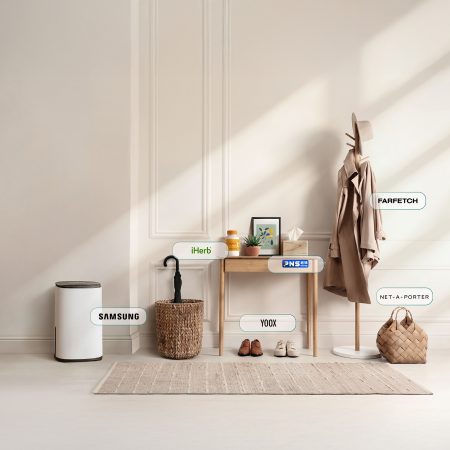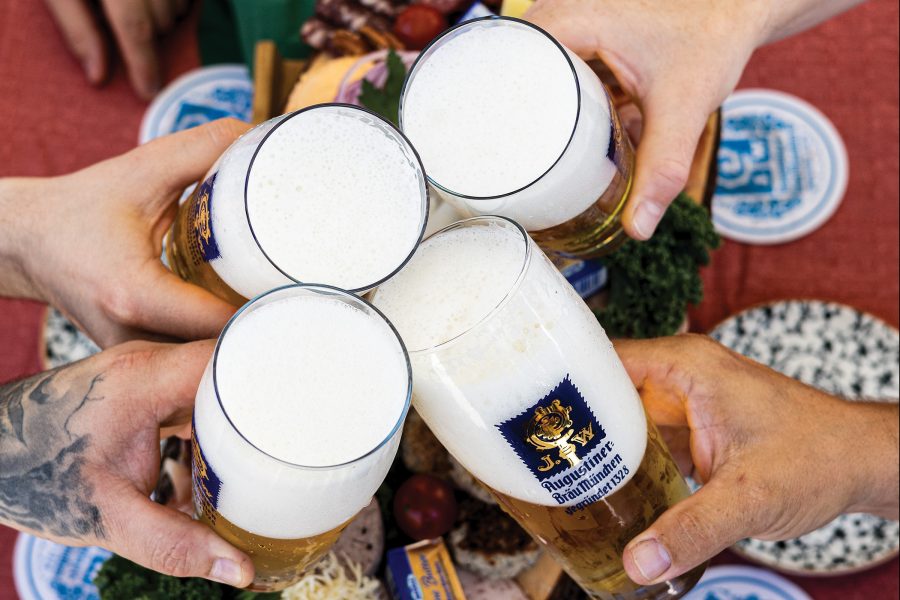To make the most of Munich’s foodie scene, you have to try a bit of everything. As well as traditional taverns and buzzing beer gardens, you’ll find creative chefs cooking in compact market kitchens. Regional food and local producers frequently take centre-stage, reflecting the region’s fertile land, time-honoured traditions and strong sense of community. From Michelin-starred establishments and cosy inns to the latest fusion options and must-book hotspots, here’s where to eat in the buzzing Bavarian capital.

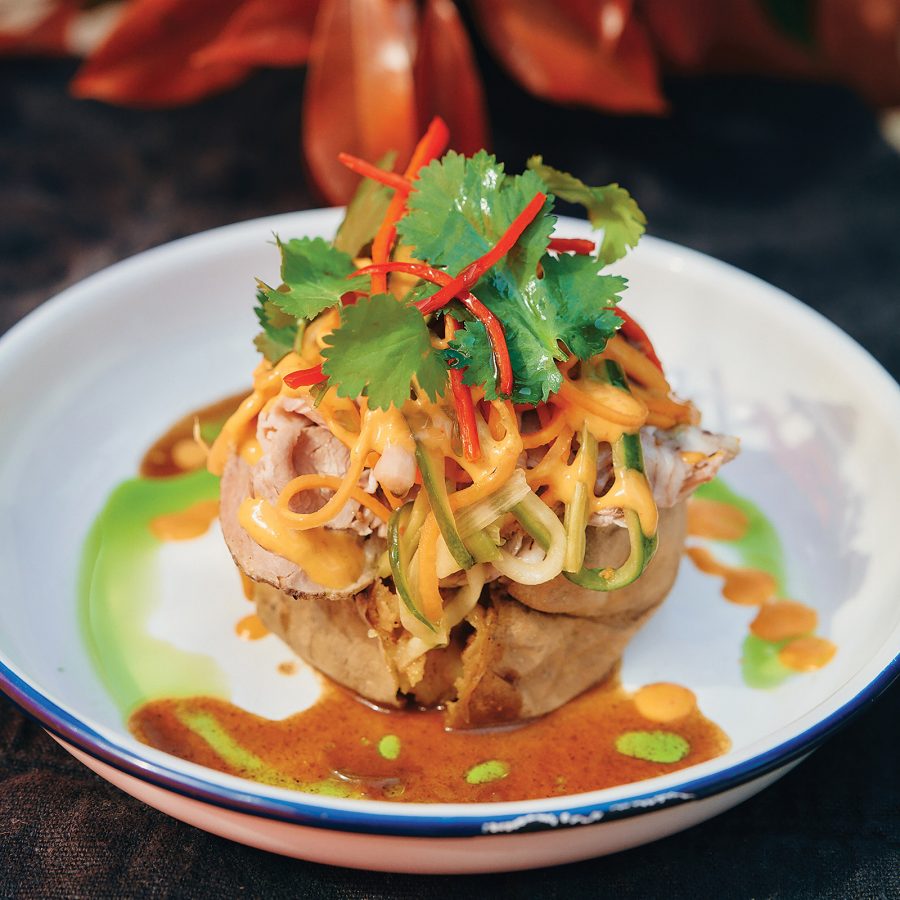
1. Caspar Plautz
When Caspar Plautz opened in the city’s main outdoor food market, Viktualienmarkt, this humble potato stall made an immediate splash with its hip reimagining of traditional classics for a modern palate – and seven years later, the hype remains. Come for a selection of spuds – starchy, waxy, misshapen, purple – and enjoy them melt-in-your-mouth baked and served with seasonal toppings, such as pumpkin, ricotta, hazelnuts and sumac, or smoked fish with celery, apple and walnuts. The stall also has regular specials and collaborations with some of Bavaria’s most dynamic chefs.
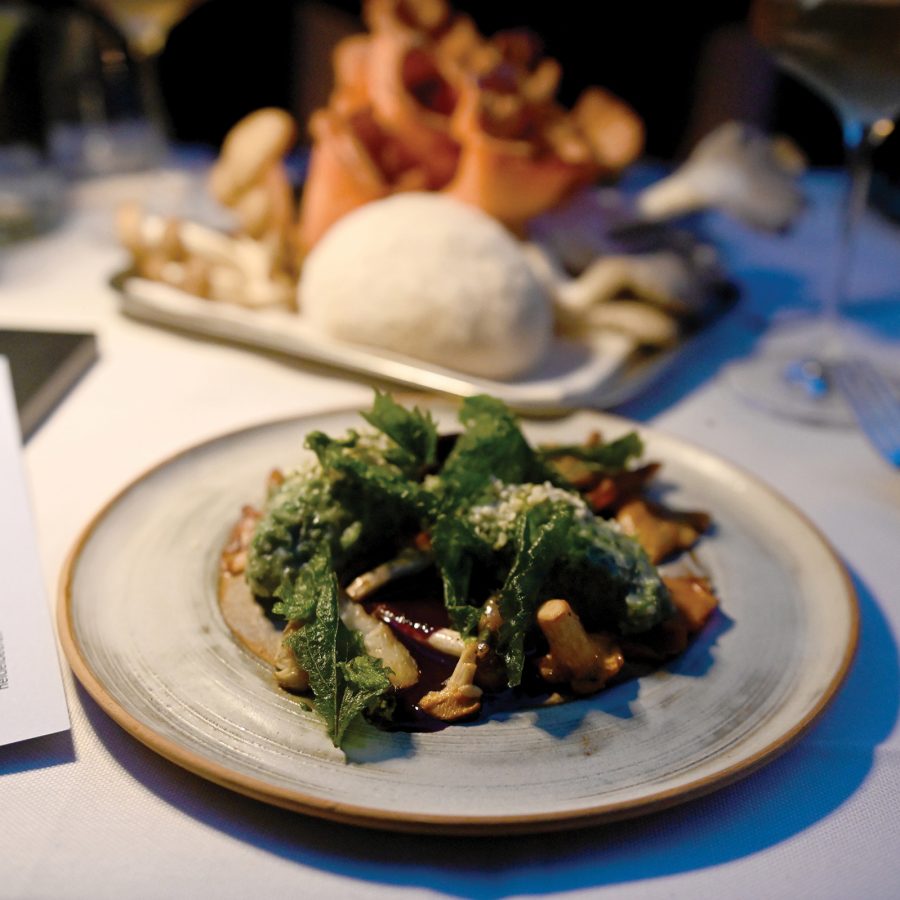
Credit: Brennessel Malfatti
2. Malva
Handmade ceramics, calming colours and soft lighting create a relaxed setting for dinner at this new spot in Haidhausen , a quiet neighbourhood in the east of the city. Since 2024, Julian Fritz and Clemens Huber, previously of Munich institution Broeding, have been preparing fierce four-course set meals (leave space for the optional cheese plate). Recent highlights include pink roasted lamb with seaweed and leek, and nettle malfatti (dumplings) with mushrooms and wild blueberries. On warmer evenings, choose to sit in the restaurant’s intimate candlelit courtyard next to its ivy-covered wall.
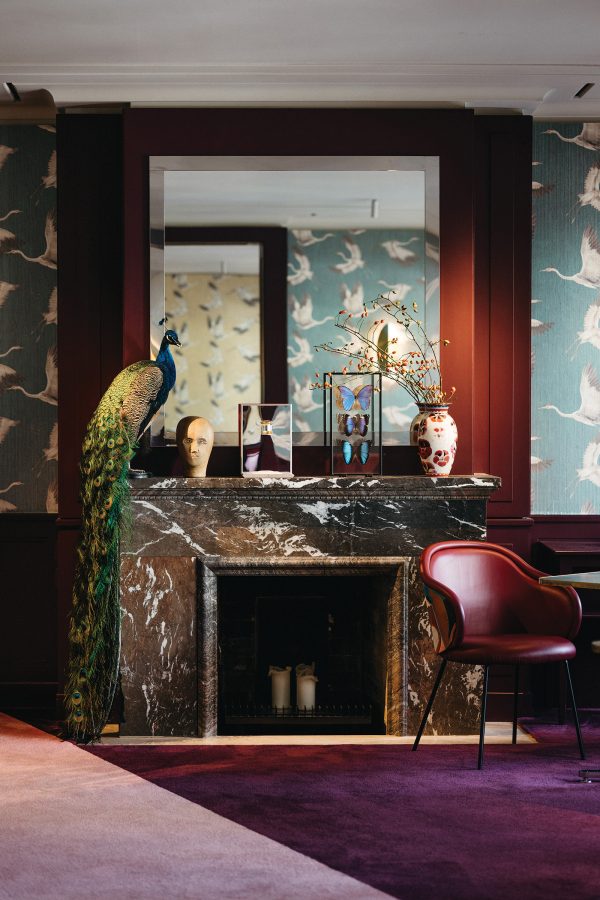
Credit: Annette Sandner

Credit: Annette Sandner

Credit: Annette Sandner
3. Alois – Dallmayr Fine Dining
With two Michelin stars, upscale Alois is one of the most celebrated restaurants in Munich – a reputation not harmed by its setting above the city’s famous Dallmayr delicatessen. Since 2023, the kitchen has been in the hands of Rosina Ostler, an exciting young chef who worked at top culinary addresses in Berlin and Oslo before coming home to Munich. Lunch is 10 courses and dinner an endurance test of 16, each plate offering a delicate arrangement of ingredients conjuring strong and surprising flavours. Expect Nordic, French and Bavarian influences.
4. Ciao Chang
Once a pub and now a mix of sake bar and Bavarian inn – yes, really – Ciao Chang ’s wood-panelled space is furnished with paper lanterns, Japanese film posters and assorted ornaments and knick-knacks. The tapas-sized plates – think tuna sashimi with cress and capers, or grilled cabbage with gochujang butter – are designed for sharing, meaning you can sample a lot of what’s on offer in a single visit. While the dishes lean more towards pan-Asian cuisine, the ingredients come from closer to home, such as tofu from the nearby town of Erding, fish from the Isar Valley and miso paste from the Black Forest.
5. Der Pschorr
There are plenty of traditional taverns in Munich, and no visit to the city would be complete without stepping inside an establishment where lager is served by the litre. Old Town staple Der Pschorr offers vaulted ceilings, large windows and an extensive menu to help you get acquainted with local culinary specialities. Classics include schweinshaxe (pork knuckle) with dumplings and cabbage salad, and fleischpflanzerl (meatballs) with creamy mashed potato. The staff also take pride in serving meat from Murnau-Werdenfels, one of the oldest cattle breeds in Bavaria.
6. Madam Chutney
When Prateek Reen arrived from New Delhi in 2016, she quickly spotted a gap in Munich’s dining scene. After starting out with humble street food in the north of the city, she now runs two busy spots in the centre of town. Head to her main restaurant on Frauenstraße for aromatic curries, flaky samosas and deep-fried bhatura, or make a beeline for her smaller deli, Madam Chutney Bowls & Curries , near Sendlinger Tor, for curry and salad bowls, thalis and kathi rolls. Reen uses family recipes and nostalgic memories as inspiration but loves to experiment too – try her ice cream made with paan leaves, candied fennel and honey-rose jam.
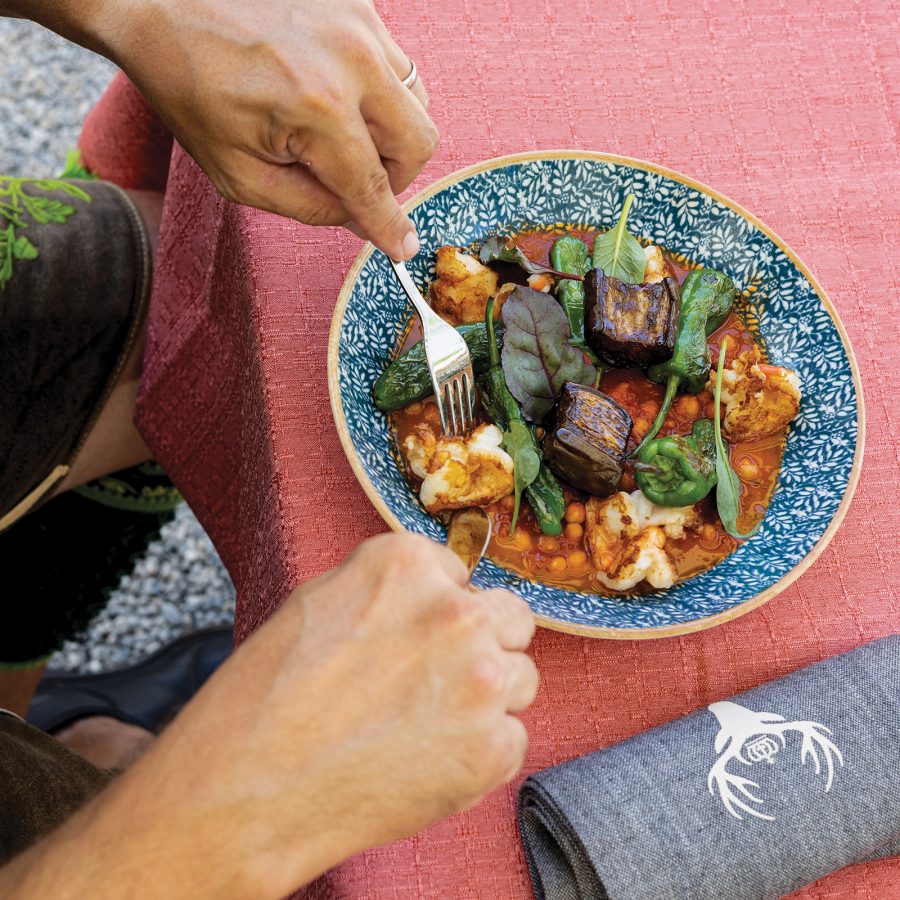
Credit: Regula Wolf
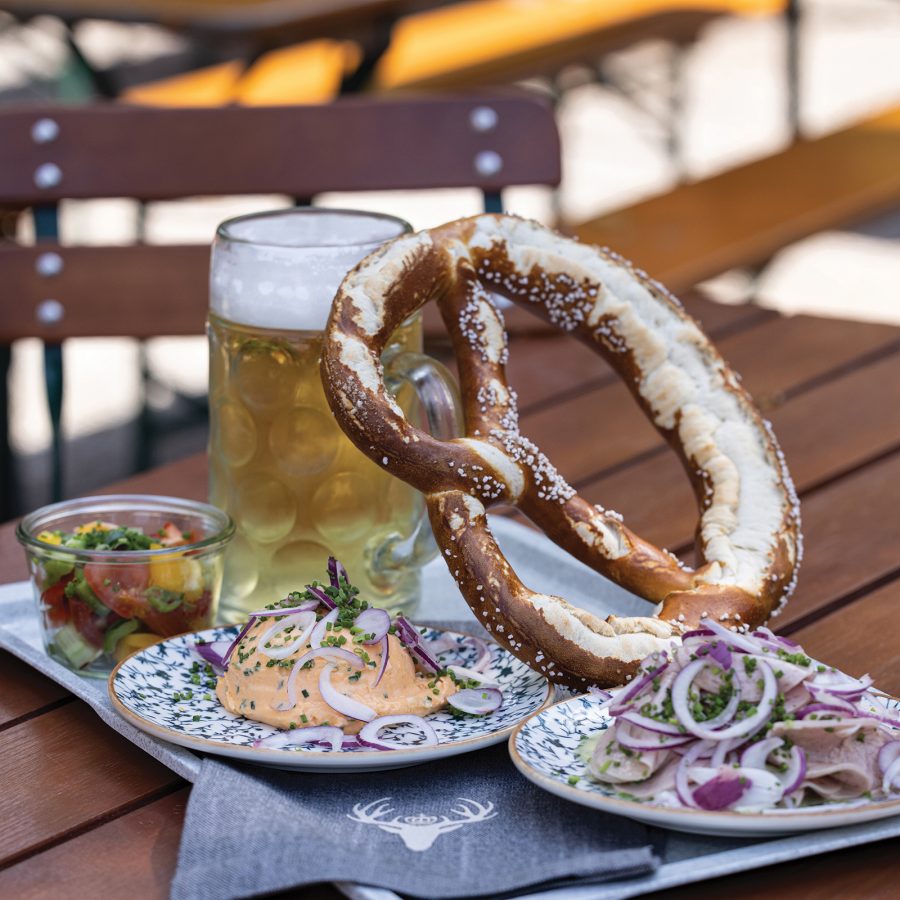
Credit: Regula Wolf
7. Hirschgarten
The communal tables in Munich’s beer gardens fill up quickly in summer, as families and friends gather for hop-based refreshments under the trees. Alongside heavy mugs of beer, you’ll find warm meals and cold Bavarian snacks lined up in the self-service glass cabinets. Reach for the vinegary sausage salads topped with raw onion, thinly sliced radishes, or pots of creamy obazda made with camembert and paprika. There are gardens all over the city but Hirschgarten in the Neuhausen-Nymphenburg district is perhaps the most impressive, seating up to 8,000 people.
More inspiration
Munich travel information
- China – the Chinese Mainland, Hong Kong SAR, Macao SAR and Taiwan Region
- Hong Kong SAR - English
- Chinese Mainland (China) - English
- Taiwan, China - English
- 香港特別行政區 - 繁體中文
- 中国內地 - 简体中文
- 中國台灣 - 繁體中文
- Africa
- South Africa - English
- Asia
- Bangladesh - English
- Korea - English
- Singapore - English
- Cambodia - English
- 한국 - 한국어
- Sri Lanka - English
- India - English
- Malaysia - English
- Thailand - English
- Indonesia - English
- Maldives - English
- ประเทศไทย - ภาษาไทย
- Indonesia - Bahasa Indonesia
- Myanmar - English
- Vietnam - English
- Japan - English
- Nepal - English
- Việt Nam - tiếng Việt
- 日本 - 日本語
- Philippines - English
- Australasia
- Australia - English
- New Zealand - English


